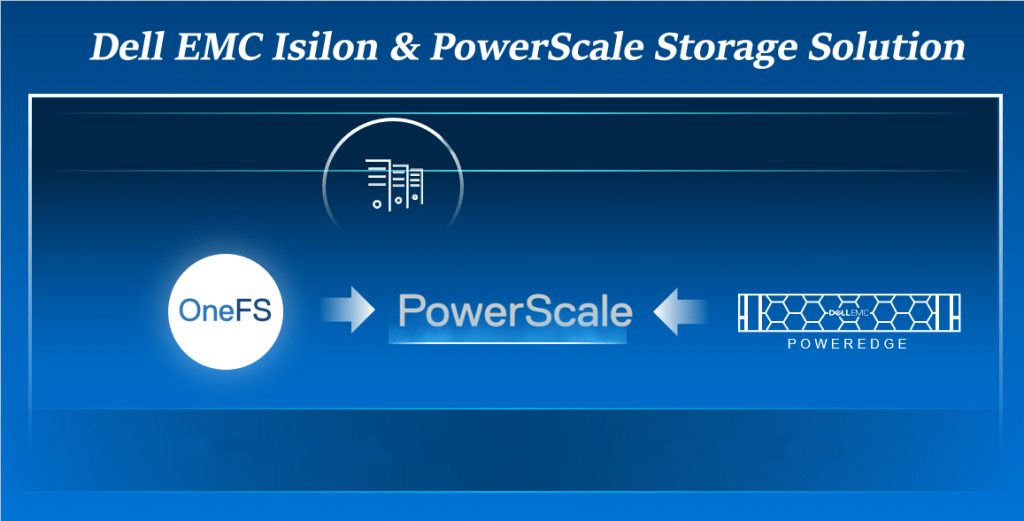Modern enterprises need more diligent power and computing capabilities for the storage and processing of real-time data to accelerate their business functions. With the passage of time and the need for seamless networking capabilities, the storage and cloud platform providers have built strong partnerships and struck alliances to offer some of the most futuristic cloud-based as well as on-premise storage and data server options for customers across the globe.
A fusion of HDFS (Hadoop Distributed File System (HDFS) with the OneFS enriched with a PowerScale cluster will boost storage efficiency with optimum utilization of network storage and resources for the modern enterprise. It combines the ecosystems attached with Hadoop-plus-OneFS infusion into a single, cloud-based, stable infrastructure that will clearly bring major advantages to maximize leverage of data-driven and storage-oriented network infrastructure.
The entire setup enables a unique yet standard implementation of multi-protocol access with unified support for NFS, HTTP, SMB, and FTP standard protocols. The configuration – known as PowerScale – offers an ideal alternative storage system to the typical native HDFS platform by bundling it with data management features that are enterprise-level as well as business-agnostic. NYGCI has also emerged as the focal point of most of the clients with an emerging and up-skilled CoE of its own for managing and delivering Hadoop and HDFS capabilities with desired PowerScale cluster architecture.
The protocol essentially operates in between the flagship Isilon cluster and the Hadoop compute cluster for maximum performance – thereby connecting and authorizing data access over the Isilon cluster. Hadoop clients can connect with any PoweScale cluster, which can enable referencing a single and unique NameNode and not the DataNode – rather than being routed by an external protocol or function. The setup also offers improved resource utilization with a lot of benefits – including the separation of the storage from the computing resources, by virtue of ‘decoupling’. The implementation does not utilize the typical storage layer – OneFS rather serves as a lightweight and native protocol upon which HDFS configuration is deployed in a seamless fashion.
In an architecture comprising the HDFS rack powered with Isilon EMC hardware, the cluster consults the defined rack to determine the nodes across which to connect to obtain a specific data set from the targeted clusters with a pre-defined set of two or three exclusive nodes – comprising the NameNodes and the corresponding Data Nodes. NYGCI is delighted to have the competency across cutting-edge storage platforms defined by the secure network operating protocols and desired efficiency for driving data-centric processes for new-age enterprises.
Though full-scale Isilon functionality is usually feasible over the public cloud, the same is extendable to private clusters based on requirements. Enterprises that run data analytics over public cloud can eventually build their processes around AI-powered data storage options. An option for hybrid architecture involves on-premise Isilon implementation while data resides exclusively on the public cloud – that can help in Disaster Recovery when needed.
By infusing OneFS, it brings value-addition to the conventional Hadoop architecture:
The Isilon cluster is independent of HDFS, and storage functionality resides on PowerScale
If the client and the PowerScale nodes are located within the same rack, switch traffic is limited
Supports high-volume backup with archiving of unstructured data with node-level capabilities
The Hadoop MapReduce framework reside exclusively on the Hadoop compute cluster
Integration tests to services are configured properly to handle unpredictable workloads in real-time
Dell EMC line racks can potentially sync rack allocation with well-defined OneFS file storage
Nodes on the Isilon cluster act as a NameNode as well as a DataNode for effective switching
Thus, the architecture delivers benefits in terms of streamlining cross-switch traffic with ultra-modern topologies to manage overall network resources along with underlying nodes and protocols. These combine to build a more powerful and distributed Hadoop storage system for end-users as well as long-term client and business continuity needs.
Hadoop Distributed System aligned with OneFS will potentially equip enterprises to fulfill their modern-age heavy data utilization and computing needs in a stable network environment. Using the NFS or SMB protocols, the clients can leverage the power of public cloud as well as security advantages from a private cloud in a dynamic fashion.
